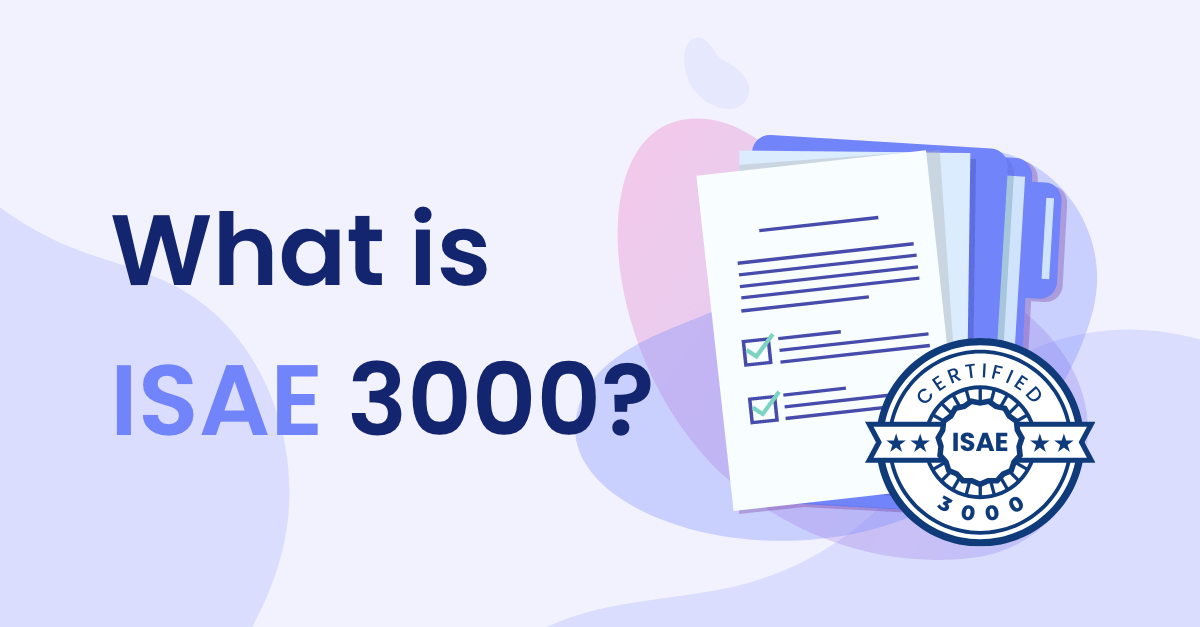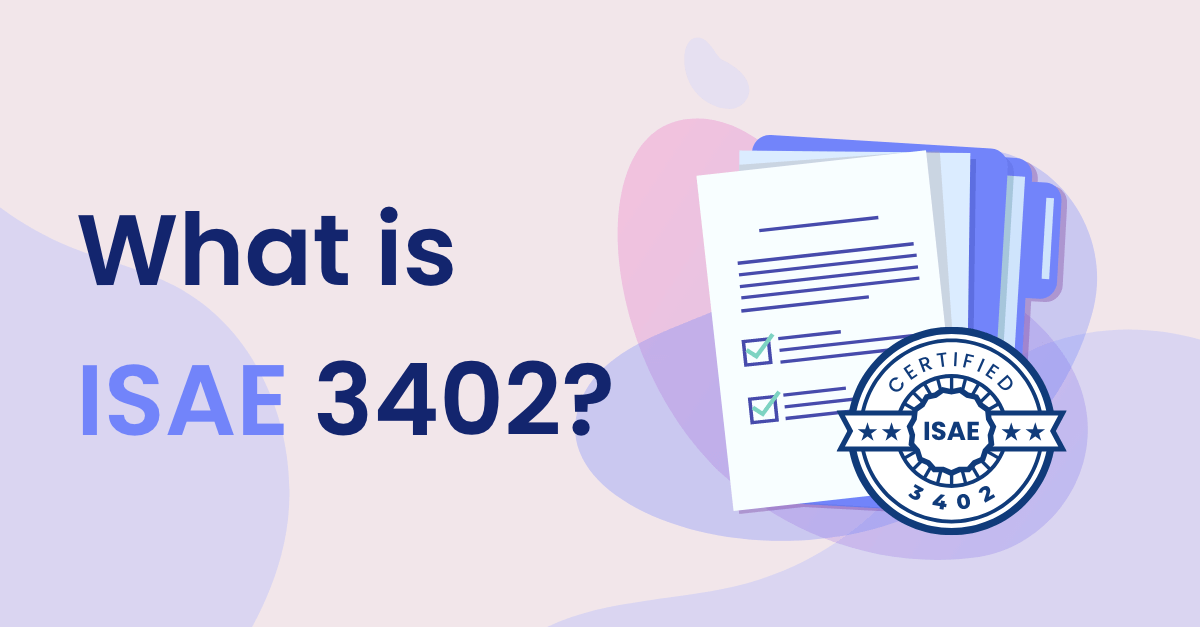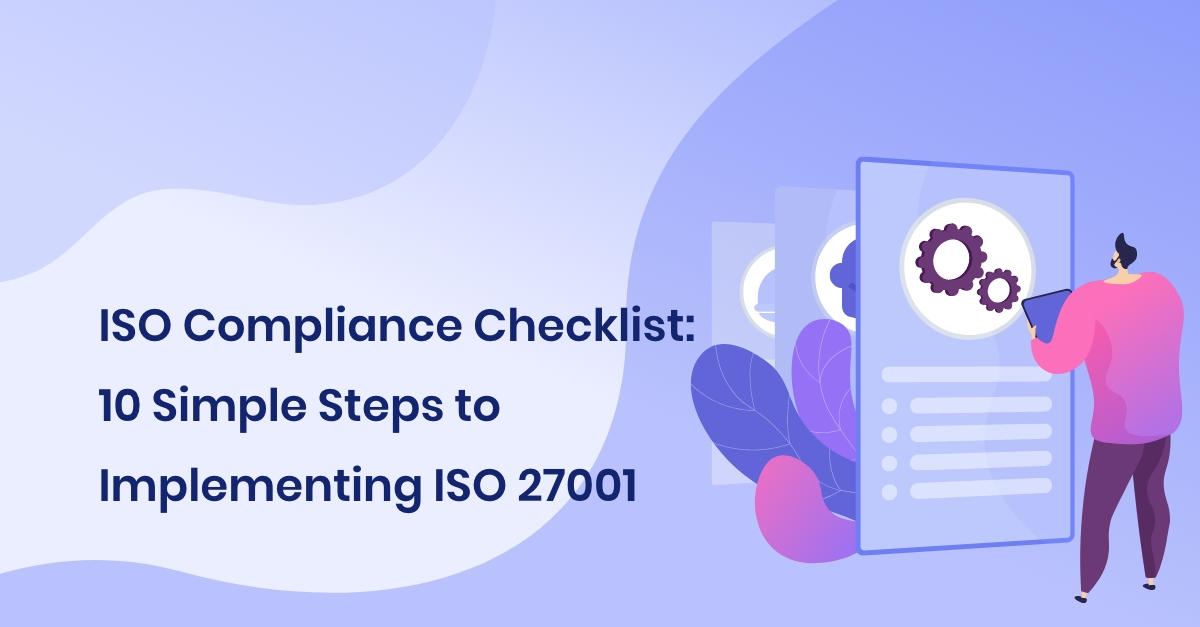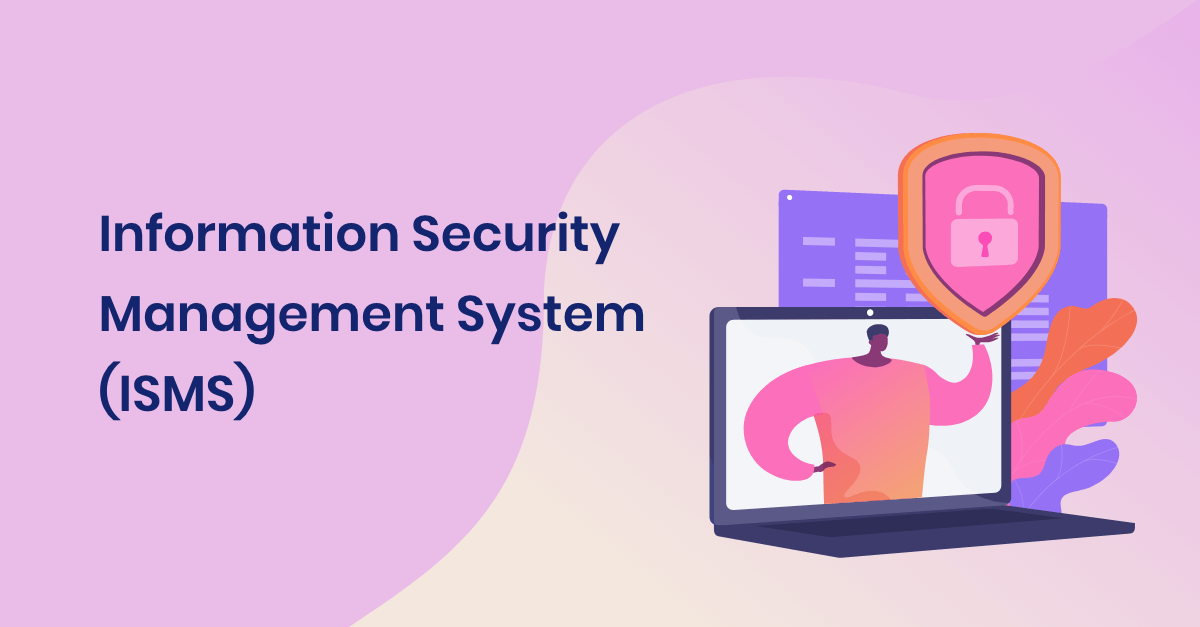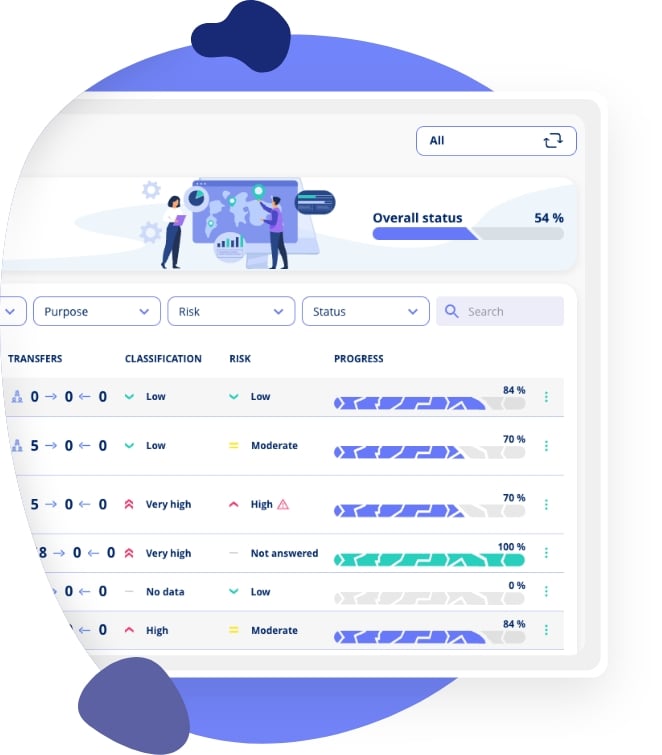ISO 27001 Compliance: What is it and how do you achieve certification?
Learn the basics of ISO27001 and how to comply with the international standard.
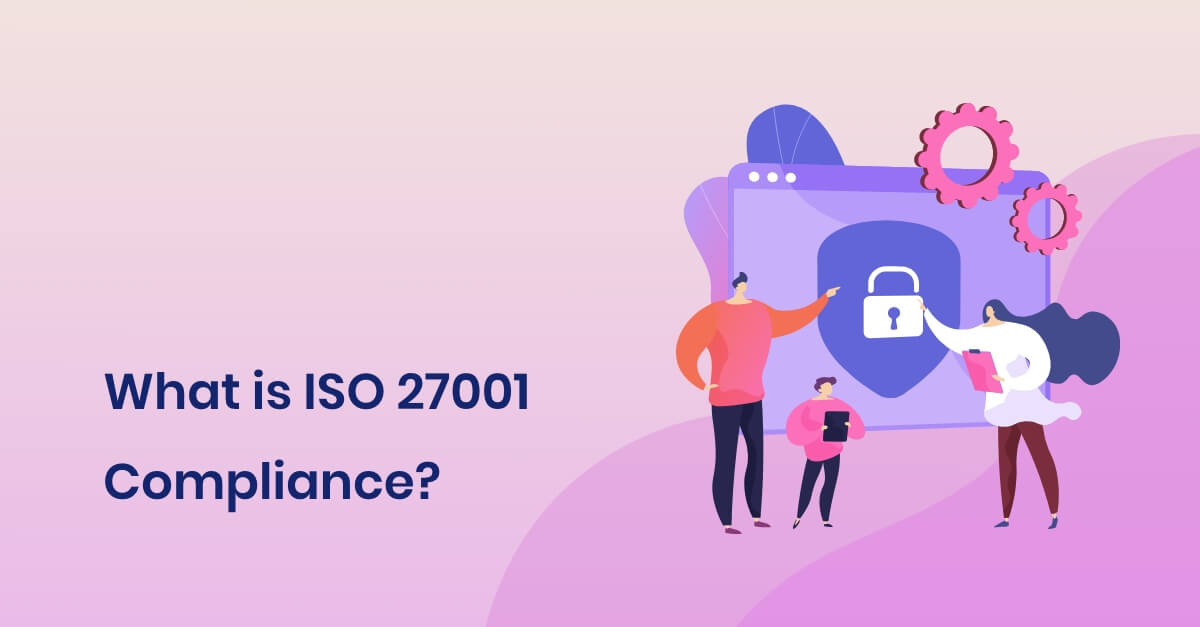
- Articles
- Information Security Management
- What is ISO27001 Compliance?
Introduction
As digital transformation accelerates, implementing adequate protection measures is equally essential. This includes data protection and IT system security. To achieve these adequate protection measures, one can utilise an Information Security Management System (ISMS). An ISMS provides the framework for protection measures, where focusing on the ISO 27001 standard, for example, offers a structured approach to what and how your data handling should proceed to ensure adequate protection.
This article provides in-depth insight into ISO 27001 as an information security standard, including the significance of being compliant with ISO 27001, the benefits it offers, and what you actually need to do to achieve it. Additionally, the article explores how you can optimise your process with automated frameworks from .legal, which can likely make the journey to ISO 27001 compliance considerably more manageable for you and your organisation.
Stay on top of your IT security compliance - use .legal's Privacy ISMS solution
What is ISO 27001?
But what exactly is ISO 27001? ISO 27001 is a recognised standard within information security and management systems (ISMS). This standard paves the way for your organisation to address everything within this field, including establishment, implementation, maintenance, and ongoing review and improvement – all to ensure confidentiality, integrity, and availability (the CIA triad).
The ISO 27001 standard establishes requirements for specific areas such as risk assessment, security measures, and management commitment. Obtaining ISO 27001 certification demonstrates that the organisation has implemented robust security measures and committed to protecting the data it processes. By adhering to the requirements in this standard, the organisation minimises the security risks associated with processing data, whilst strengthening customer trust and fulfilling legal requirements for data and privacy protection.
What is the purpose of ISO 27001 compliance?
If you're an organisation seeking to improve its information security, pursuing ISO 27001 certification would be advantageous. The standard provides a structured approach and establishes concrete requirements for different stages of data security, ensuring you address all aspects of an ISMS. This involves systematic and thorough review of the organisation's processes, plus identification and management of risks associated with data processing in all phases from startup to review (and potential improvement).
ISO 27001 certification demonstrates increased focus on security and will, all things being equal, also reduce possible security threats whilst strengthening customer trust by committing to enhanced data security. Furthermore, it streamlines compliance with privacy and data protection requirements established by law (e.g., GDPR). This also helps avoid potential fines and damage to reputation.
ISO 27001 is therefore not only relevant for secure data practices but equally promotes trust amongst stakeholders and ensures compliance with legal obligations.
You might also like to read: What does Governance, Risk and Compliance mean?
What are the benefits of ISO 27001?
ISO 27001 is a recognised standard within ISMS, offering numerous benefits for organisations. For example, the standard helps reduce costs by assisting the organisation in discovering and prioritising their information security risks. Being able to do this effectively therefore allows more advantageous resource allocation to manage these risks. Additionally, the standard generally improves information security by offering a framework that defines guidelines for secure data handling with focus on confidentiality, integrity, and availability.
This also promotes a work culture with strong focus on data security, as employees become more aware of security risks and measures, plus their role within them. ISO 27001 further requires measures such as regular risk assessments and planning for security incident management, making the organisation more resilient to cyberattacks, for instance, whilst minimising their consequences.
See also: What is Information Security Risk Management?
ISO 27001 certification therefore offers several benefits beyond just the ISO stamp; it provides a secure and reliable approach to information security management, creating goodwill amongst employees within the organisation as well as customers, regulatory authorities, business partners, and other stakeholders. Moreover, the certification also leads - all things being equal - to cost savings, improved security, and increased competitiveness, as enhanced accountability and operational reliability are achieved across all business processes.
What are the requirements for ISO 27001 compliance?
The path to fulfilling the requirements for ISO 27001 certification contains several steps to ensure the organisation can manage data security risks. For the complete overview of what's needed to become ISO 27001 certified, refer to Dansk Standard or .legal's framework of the standard.
Generally, one should consider measures such as:
Planning:
Define the scope of your organisation's ISMS and its key areas. Here, a security policy must also be developed that aligns with the organisation's objectives. Learn more about ISO compliance checklist for a detailed walkthrough.
Processing and risk:
Review data processing and, based on this, conduct thorough risk assessments to identify existing and potential data security risks. Subsequently, controls and processes must be developed to effectively address these risks. See how to conduct GDPR risk assessments with our framework.
Implementation:
Implement these information security measures and other risk treatment methods in daily operations, making it an integrated part of the work.
Auditing:
Conduct internal audits of data security measures and the ISMS against ISO 27001 requirements. Subsequently, a certification body is involved for formal review, where ISO 27001 certification is obtained through documentation of compliance with the standard (more about this in the next section).
Monitoring and improvement:
Continuously monitor the effectiveness of controls, processes, and policies; if there are deviations or deficiencies, these must be identified and resolved. Here, it's important to continuously improve the ISMS to strengthen security. Learn more about information security in healthcare or other industries.
By following this holistic standard, organisations can protect the integrity, confidentiality, and availability of their data across all their systems and platforms.
See: ISMS for IT security and NIS2 compliance
How do you become ISO 27001 certified?
Generally, ISO 27001 compliance involves a comprehensive approach to ensuring information security. The standard emphasises risk management, resilience against cyber threats, and general maintenance of highest functionality. This must also be documented and proven, so one can see it has become an integrated part of daily work. When this is implemented and complied with, external auditing by a certification body must be performed to validate that the organisation genuinely adheres to ISO 27001 requirements. If the organisation can demonstrate and document this, it is awarded ISO 27001 certification.
The process towards certification therefore requires both management and employee engagement, plus the organisation's resources and a structured approach to information security. By following the requirements in ISO 27001 and obtaining certification, the organisation demonstrates a high standard for information security, including effective protection of data and systems.
How can .legal help you establish an ISMS to become ISO compliant?
Working with a secure ISMS may seem somewhat overwhelming for some, especially when wanting all ISO requirements to be maintained. With this in mind, .legal has developed a thorough, well-crafted (and not least secure) ISMS system across channels and platforms. Here, you get the framework to easily ensure integrity, confidentiality, and availability; .legal's ISMS contains, for example, a framework for risk assessments, implementation of controls, ongoing auditing and improvement, and much more. There's also ample opportunity to customise the framework to the exact requirements and standards your organisation works with. This therefore helps protect data and minimise risks – all easily and accessibly.
See: Data Privacy Management Software & Solutions
FAQs: ISO 27001 Compliance & Certification
What is ISO 27001 compliance?
ISO 27001 compliance means your organisation adheres to the requirements in the ISO 27001 standard for information security. It involves implementing an Information Security Management System (ISMS) with risk assessments, security measures, and documentation that protects the confidentiality, integrity, and availability of data.
How do you become ISO 27001 certified?
To become ISO 27001 certified, organisations must: 1) Establish an ISMS with security policies, 2) Conduct risk assessments and implement controls, 3) Perform internal audits, 4) Document all processes, 5) Undergo external audit by a certification body. Upon approval, ISO 27001 certification is awarded.
Learn more about the certification process: ISO Compliance Checklist
What does ISO 27001 certification cost?
ISO 27001 certification costs vary depending on organisation size, complexity, and current security level. Typical costs include consultant assistance, ISMS software, employee training, internal auditing, and the external certification audit. Many organisations use compliance platforms like .legal to reduce implementation costs.
Explore .legal's solution: Information Security Management Software
Who needs ISO 27001 certification?
ISO 27001 is relevant for all organisations that process confidential data, regardless of size or industry. Particularly organisations in IT, healthcare, finance, public sector, and suppliers to larger organisations will benefit greatly from certification. It's also important for organisations that must comply with the NIS2 Directive or work with customers requiring high information security.
What is the difference between ISO 27001 and GDPR?
ISO 27001 is an international standard for information security management, whilst GDPR is EU legislation on data protection. ISO 27001 focuses on protecting all information through an ISMS, whilst GDPR specifically protects personal data. They complement each other well – ISO 27001 compliance helps fulfil GDPR's data security requirements.
Read more: What is GDPR Compliance
How long is ISO 27001 certification valid?
ISO 27001 certification is valid for 3 years. During this period, the organisation must undergo annual surveillance audits to prove continued compliance. After 3 years, a full recertification audit must be conducted to renew the certification.
What is the CIA triad in ISO 27001?
The CIA triad stands for Confidentiality, Integrity, and Availability. These three principles form the foundation of information security in ISO 27001. Confidentiality ensures only authorised parties have access, integrity protects against unauthorised changes, and availability ensures data is accessible when needed.
What is the difference between ISO 27001 and ISAE 3000?
ISO 27001 is a certifiable standard for information security management, whilst ISAE 3000 is an assurance standard for reviewing control environments. ISO 27001 focuses on establishing an ISMS, whilst ISAE 3000 documents that the control environment functions effectively. Many organisations combine both for maximum credibility.
Learn more: ISAE 3000
How does ISO 27001 help with NIS2 compliance?
ISO 27001 covers many of the same security requirements as the NIS2 Directive. By implementing ISO 27001 compliance, organisations gain a structured ISMS that assists with risk assessment, security controls, and incident management – all central elements in NIS2. ISO 27001 certification also demonstrates to authorities that the organisation takes information security seriously.
Can .legal help with ISO 27001 compliance?
.legal offers a complete ISMS platform with an ISO 27001 framework. The platform guides you through all certification requirements including risk assessments, implementation of controls, documentation, and audit preparation. This makes the path to ISO 27001 certification more manageable and efficient.
Get started with .legal: Book a demo



.jpeg)

.jpg)
.jpg)



.jpg)

-1.png)



.jpeg)








.jpg)





Info
.legal A/S
hello@dotlegal.com
+45 7027 0127
VAT-no: DK40888888
Support
support@dotlegal.com
+45 7027 0127
Need help?
Let me help you get started

+45 7027 0127 and I'll get you started
.legal is not a law firm and is therefore not under the supervision of the Bar Council.




